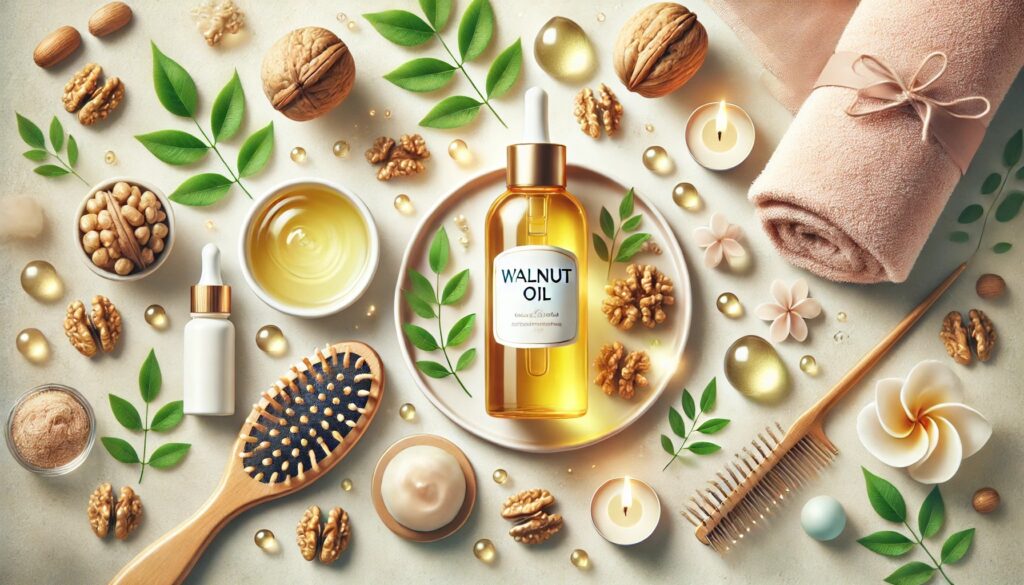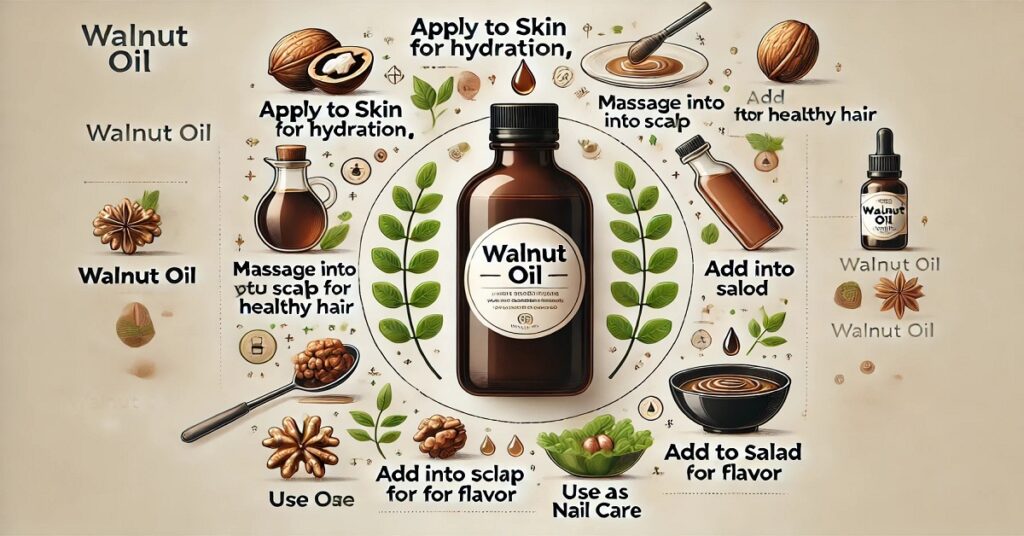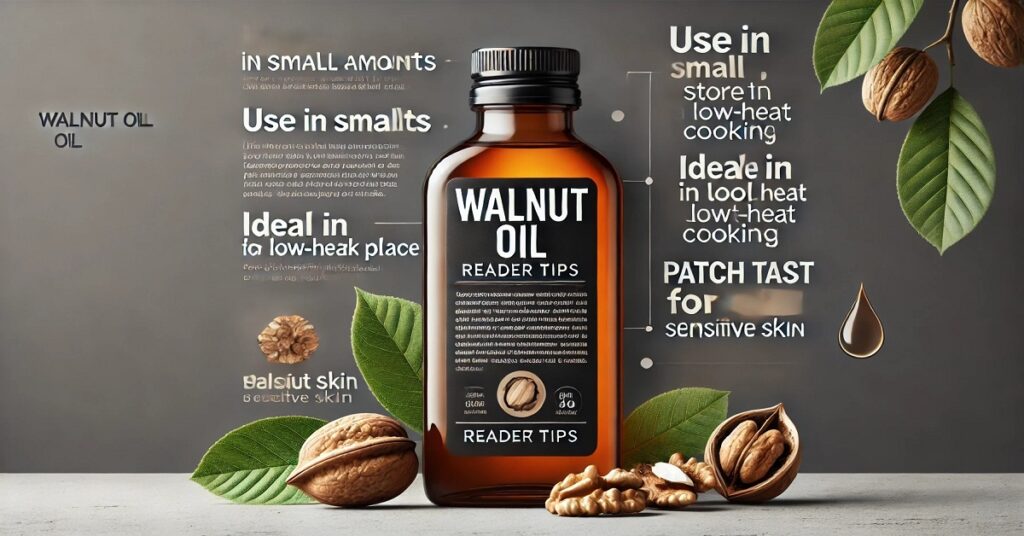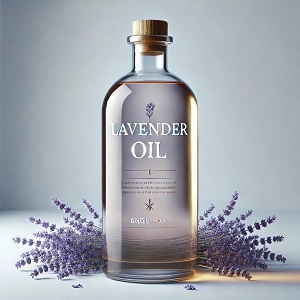
Well, walnut oil is edible and highly nutrient-rich, making it a staple worldwide in gourmet and health-promoting kitchens. Flavored nutty flavor, unique, versatile, and pairs nicely with many different foods. Walnut oil has a gentler intensity than heavier oils, making it a perfect match for salads, pasta, and desserts.
Rich Source of Omega-3 Fatty Acids: Walnut oil is an excellent source of omega-3 fatty acids, which may promote heart health, reduce inflammation, and benefit brain health. This synergistic polyunsaturated fats and antioxidant combination promotes cholesterol control, protects from heart disease, and benefits cognitive health. Walnut oil provides excellent flavor and health as an alternative to cooking oils such as olive and canola.
That said, walnut oil has a lower smoke point than many other oils, so it is for cold dishes or low-heat cooking. Walnut oil has a delicate flavor and contains delicate fats that can be broken down through high heat, reducing many health benefits. Regarding taste and nutrients, walnut oil is an excellent addition to the diet, especially for those who like raw or less cooked food.
Table of contents of walnut oil
Personal Experience with Walnut Oil
Paragraph 1:
I first discovered walnut oil because I was curious. Everyone was raving about its alleged health properties and peculiar taste. I was dying to taste it as soon as I opened the bottle, with a delightful harmony of earthy and just a little bit sweet aroma that soothed the senses. It was a small reminder of nature’s abundance, and I felt reconnected to ground, soil, and land just by the first few breaths in.
Paragraph 2:
Walnut oil was the first specialty oil I tried back on salad. Only a drizzle over fresh greens plus a small squeeze of lemon highlighted the individual flavors of each ingredient. It helped turn an otherwise standard salad into something unique and unforgettable. It provided a nutty note that added a depth not seen by other oils and came together to compliment the greens beautifully. Walnut oil has been a kitchen ‘must-have’ for me ever since, making even the simplest of meals special.
Paragraph 3:
The subsequent discovery I made was playing with walnut oil on my skin. I massaged a few drops into my face after cleansing. It soaked in quickly and made my skin feel rich and supple but not greasy. Eventually, I saw a healthy radiance and refinement of my skin tone. I started to like walnut oil’s natural glowy effect on my skin. It felt more even and softer.
Paragraph 4:
It also helped my hair feel better. As a pre-wash treatment, I massaged walnut oil into my scalp and through the lengths of my hair. After using it, my hair felt nourished, shinier, and more manageable. While not confirmed to cure all dryness or breakage, this oil was a sealant to protect my hair from that damage, essential for a healthy hair routine.
Paragraph 5:
Along with cooking, I used walnut oil in my body care regime, and I somehow began to experience wellness that felt deeper than the physical. Knowing that I was fueling my body with something natural and good gave me peace of mind. Using was always a mini form of self-care, a reminder that I should care for myself and that nature has many beautiful gifts.
Paragraph 6:
All in all, I learned my lesson, and my walnut oil experience has been one for the ages. A product that has genuinely improved my life in subtle yet significant ways, whether it be in my food, skin, or hair. It is something that I cannot picture my routine without using, and I am excited to see how else I can incorporate it into my daily habits.
Who can use Walnut Oil?
Because walnut oil is considered safe for all ages, it is a versatile family wellness choice. The oil provides heart-healthy benefits and anti-inflammatory support for adults, and its antioxidants and omega-3s promote cognitive function and skin health. It is an excellent option for middle-aged and retired adults who can take advantage of its cholesterol-lowering effects and ability to support joint cartilage.
Walnut oil can be a good source of essential nutrients for kids in moderation. It contains omega-3 fatty acids necessary for a child’s brain development. That said, parents should always speak with a healthcare provider before introducing it, especially for young children or those with nut allergies. Walnut oil is also mild enough to use on children’s skin! Mix a small amount with coconut oil to create a mild moisturizer with protective properties that don’t require many chemicals.
Health Benefits of Walnut Oil
Rich in beneficial nutrients, walnut oil is a one-stop solution for many health disorders. Now let’s take a closer look at what this fantastic oil provides for overall health:

Promotes Cardiovascular Health: Packed with omega-3 fatty acids, walnut oil lowers bad cholesterol (LDL) and elevates good cholesterol (HDL), keeping the heart in good shape. In addition to being rich in antioxidants, this oil can lower the risk of cardiovascular diseases, making it an excellent choice for heart health.
Promotes Brain Activity: Walnut oil’s abundance of omega-3s contributes to brain health, facilitating cognitive function and memory. Research has indicated that walnut oil is substantial in neuroprotection, can help prevent the onset of neurodegenerative diseases, and preserves cognitive function throughout aging.
Anti-inflammatory Benefits: Walnut oil’s high amount of polyunsaturated fat and antioxidants makes it ideal for alleviating the symptoms of people with inflammatory conditions such as arthritis. These hydrate and reduce inflammation in all body organs. Its anti-inflammatory nature makes it perfect for people with chronic pain or autoimmune issues.
Supports Digestive Health: Walnut oil promotes regularity due to its mild laxative effects, making it great for active digestion. It is very gentle on the digestive system, which will continue to function without harsh medications.
Improves Immune System Walnut oil is rich in antioxidants, which help provide a robust immune system to fight against free radicals, reducing the risk of diseases. This immune system boost makes walnut oil a significant part of a healthy diet.
Walnut Oil Benefits For Skin and Hair
The benefits of walnut oil are not only limited to internal health; it is also a great skin and hair care product:

Intense Hydration: This product penetrates the skin deeply and provides lasting moisture. It is ideal for dry or sensitive skin and nourishes without clogging pores or leaving behind an oily film.
Coordinates a Unique Resistance to Aging: This oil contains antioxidants and vitamins to help you look young without fine lines and wrinkles. Its antioxidants fight free radicals that speed up skin aging.
Walnut oil may help acne-prone skin because it has anti-inflammatory properties. It reduces redness and swelling to help clear blemishes and prevent future breakouts.
Walnut oil can treat dry, flaky scalps and nourish and strengthen hair from the root. Massage into the scalp encourages blood circulation, promotes hair growth, and helps reduce dandruff. Frequent application can easily cause healthier, shinier hair that breaks less.
Provides Natural Luster: Walnut oil may give your hair a natural luster if it looks dull or lifeless. A few drops used post-styling can give it a lustrous shine and an overall more prosperous, healthier look. This oil is lightweight, so it will not drag hair down and remain soft and easy to comb through.
Walnut oil forms a protective barrier that prevents moisture loss, helps restore natural elasticity, and prevents split ends from forming over time.
Recipe Ingredients Table for Walnut Oil Uses
| Recipe | Ingredients |
|---|
| Salad Dressing | – 1 tbsp walnut oil – 1 tsp balsamic vinegar – Salt to taste |
| Moisturizing Facial Serum | – 1 tbsp walnut oil – 2 drops lavender essential oil |
| Hair Repair Mask | – 1 tbsp walnut oil – 1 tbsp coconut oil |
| Scalp Treatment | – 1 tbsp walnut oil – 1 tsp tea tree oil |
| Nail and Cuticle Care | – 1/2 tsp walnut oil (for each nail) |
These recipes highlight the versatile uses of walnut oil for both culinary and personal care routines
How to Use Walnut Oil

Walnut oil has many versatile uses and is easy to incorporate into your daily routine. Some of the most common uses are:
Culinary Applications: Walnut oil’s light flavor is ideal for salads, dressings, and drizzles on top of cooked foods. Do not use it for high-heat cooking, which can deplete the beneficial compounds in the oil. Mix it with balsamic vinegar and herbs to transform it into a salad dressing, adding a gourmet flair.
Skincare: After cleansing, apply some drops of walnut oil to the face and neck. Massage it gently upwards in a circular motion to improve oil penetration. It can be worn as a layering moisturizer under makeup or as a nourishing treatment at night.
Hair Care: Massage one tablespoon of walnut oil over the scalp and allow it to remain for thirty minutes before washing. We will provide a scalp treatment. Use a few drops on damp hair for shine, smoothing it through the ends to seal in moisture and impart a hint of healthy shimmer.
Nail and Cuticle: Walnut oil suits brittle nails and hard cuticles. Rub a portion on each nail for smooth, shiny nails.
Benefits of Walnut Oil
Here are some of the advantages of walnut oil that with its effectiveness:
Natural source of Omega 3s: It is one of the very few plant-based sources of omega-3 fatty acids that is beneficial for heart, brain, and joint health
USEFUL Walnut oil is an invaluable ingredient for cooking and a skincare and hair care product.
Rich in Antioxidants: Walnut oil’s antioxidants eliminate oxidative stress, one of the primary causes of aging and chronic diseases.
Moisturising but Not Greasy: Cold-pressed walnut oil is not greasy at all. It has a very light consistency but is heavy and absorbs nicely, making it suitable for all skin types.
Walnut oil has vitamins, fatty acids, and minerals, benefiting whole-body health.
Walnut Oil Research You Can Trust

Paragraph 1: Recent studies show walnut oil reduces LDL cholesterol, which helps protect you against heart disease. Walnut oil contains polyunsaturated fats, most importantly omega 3s, demonstrating profound protective effects on cardiovascular health.
Paragraph 2: Research on Cognitive health also shows that walnut oil consumption can help decrease age-related cognitive decline. Its omega-3 content enhances memory, focus, and general mental performance.
Wrinkle bullet: Studies of walnut oil’s anti-inflammatory properties support its use for arthritis relief. The oil’s fatty acids and antioxidants have proven effective in lowering inflammation, which is excellent for easing something as commonplace as joint pain.
4th paragraph: Research indicates the success of walnut oil as an effective treatment for dry skin and facilitating elasticity in dermatology. The antioxidants fight free radicals, the biggest culprits of premature aging, which is excellent for mature skin.
Paragraph 5: Immunological studies indicate walnut oil enhances immune system activity. The high levels of antioxidants in the oil give the body the tools to fight infection, directly leading to better health.
Table of Pros and Cons of Walnut Oil
| Pros | Cons |
|---|---|
| Rich in Omega-3 Fatty Acids: Supports heart, brain, and joint health. | Not Suitable for High-Heat Cooking: Low smoke point. |
| Contains Antioxidants: Helps reduce oxidative stress and aging. | Can Cause Allergic Reactions: Not suitable for people with nut allergies. |
| Excellent for Skin and Hair: Moisturizing, anti-aging, and anti-inflammatory. | Shorter Shelf Life: Prone to spoilage, especially if not stored properly. |
| Nutrient-Rich: Contains vitamins E and B, beneficial for overall health. | Relatively Expensive: Higher cost compared to common cooking oils. |
| Adds Unique Flavor: Light, nutty taste ideal for salads and dressings. | Limited Availability: Not as widely available as other oils in stores. |
| Non-Greasy Hydration: Absorbs well, suitable for all skin types. | Sensitive to Light and Heat: Requires careful storage to preserve quality. |
| Natural Source of Polyunsaturated Fats: Beneficial for inflammation. |
Reader Advice
If walnut oil is new to you, I recommend starting with small amounts so your skin and body can get used to it. Slowly add it to your diet (or skincare routine, if relevant) to experience the benefits of guna.

Section 2: Always buy high-quality, cold-pressed walnut oil to preserve its beneficial compounds. Search for organic options to avoid chemicals or preservatives that may dilute the oil’s purity.
3 The high omega-3 content of walnut oil can make it prone to spoilage, so store it in a cool, dark place to minimize oxidation. We may be able to prolong shelf life using refrigeration.
Check for Skin Reactions: If you have susceptible skin, read the instructions in the box and test walnut oil before applying it to a sensitive part of the body. Nut oils can be irritating (4), so put a small amount on a little patch of your skin and see if you get a rash.
Paragraph 5: So be innovative in the kitchen and your beauty procedure! It complements a range of other ingredients, making it a versatile oil for recipes and DIY skincare combinations.
Final Thoughts: The Power of Walnut Oil in Nature
Walnut oil is a perfect source of multiple benefits to enhance your diet. Its profile of omega-3s, antioxidants, and other nutrients makes it great for those who want to make natural health choices. Whether fused in the kitchen or in beauty applications, walnut oil benefits physical health and connects to natural living, organizing a holistic life. Incorporate walnut oil into your routine as a simple yet impactful pillar of wellness on your plate, and enjoy fulfilling a larger purpose.
Q: Questions about (FAQs)

Can we use walnut oil every day?
Safely in your diet and on your skin, but in moderation, especially in your diet.
So that leaves us with the fact that deep-frying is a less-than-ideal use of walnut oil, but does that mean that
for deep-frying?
Walnut oil is best used in low-heat or raw applications, as it has a low smoke point. It is also regularly used for deep-frying.
Yes, for the most part, but talk to your pediatrician, particularly if your child has nut allergies.
Can walnut oil reduce acne?
The anti-inflammatory activity of this oil can minimize redness and irritation in pimply skin.
How do I store walnut oil?
Store it in a cool, dark place or the back of the fridge so it does not go rancid.
What foods does walnut oil go with?
Walnut oil goes well with salads, pasta, and desserts, adding a nutty touch to flavors.
Is mixing walnut oil with any other oil possible?
Yes, it is ideal to dilute it with other oils for enhanced benefits (particularly in skincare)
Does walnut oil lighten skin?
Walnut oil might not whiten skin but might improve tone and texture because it nourishes your skin.
Previously, walnut oil was a safe option for many people with sensitive skin.
It may be Gentle, but they recommend doing a patch test if you have sensitive skin.
Does Walnut Oil Help In Hair Growth?
Walnut oil nourishes the scalp, so it might also help your hair grow more healthily and stronger.
Quick Summary
Walnut oil is a nutrient-rich oil famous for its certain health and beauty benefits. Packed with omega-3 fatty acids, antioxidants, and vitamins, it is helpful for food, non-food, or cosmetics. This oil is excellent for heart support, brain function, and moisturizing skin and hair. Although ideal for cold dishes and low-heat applications, it also excels as a moisturizer and scalp treatment. Discover walnut oil as an easy way to take care of yourself and your spirit by spicing up your life with flavor and wellness.


